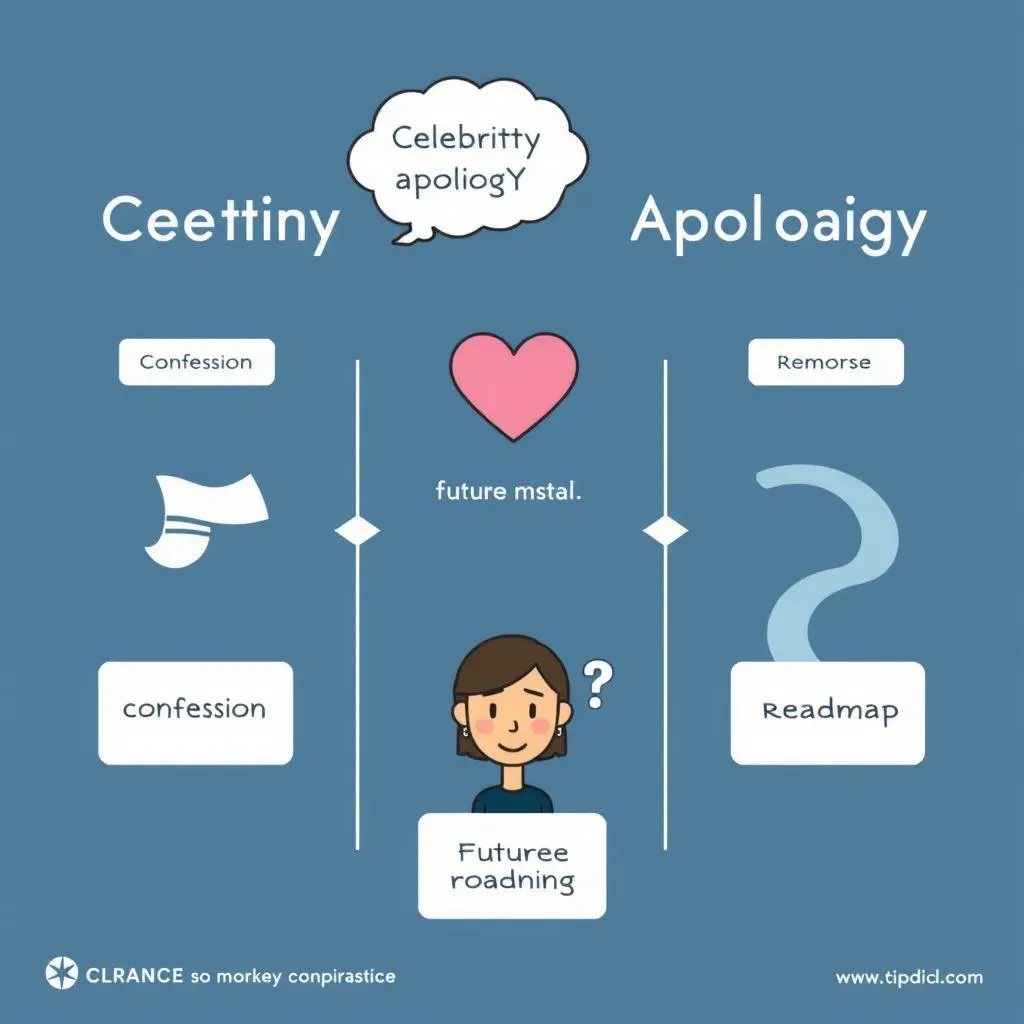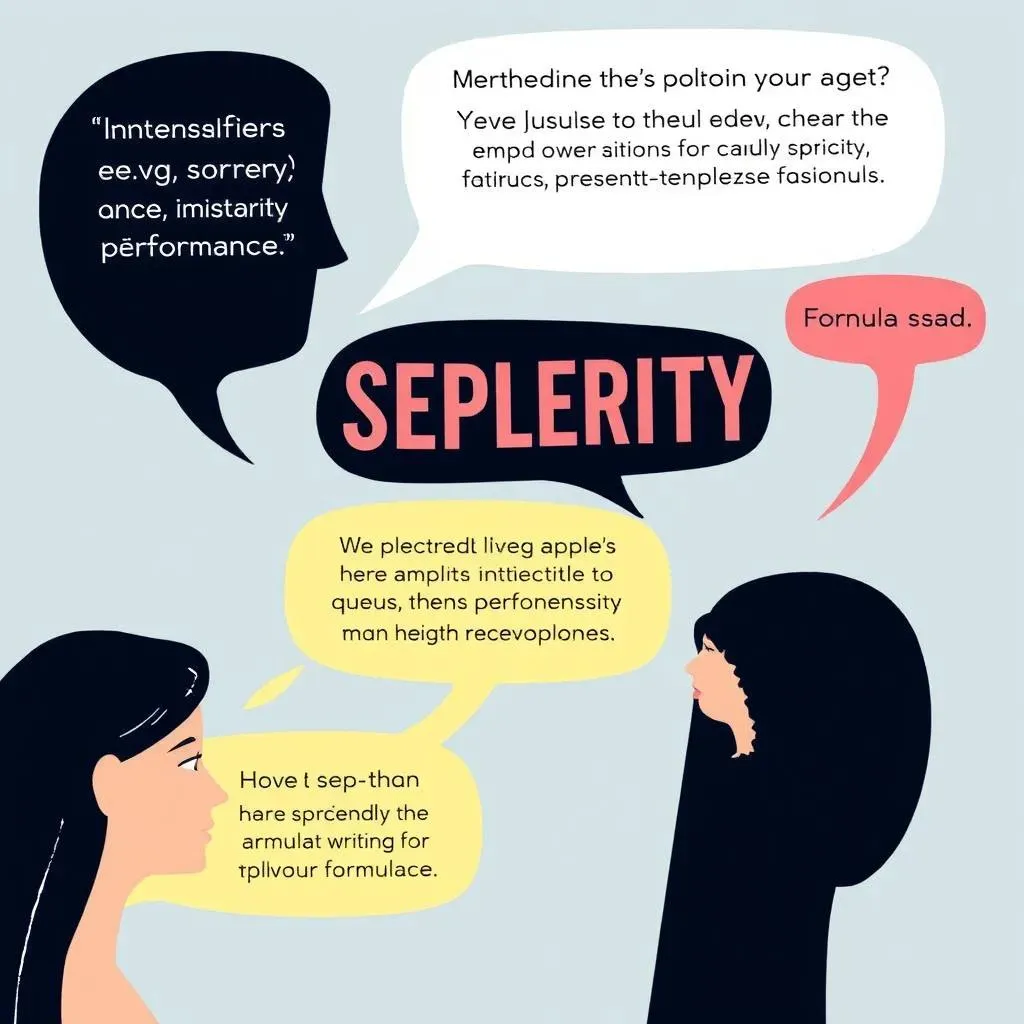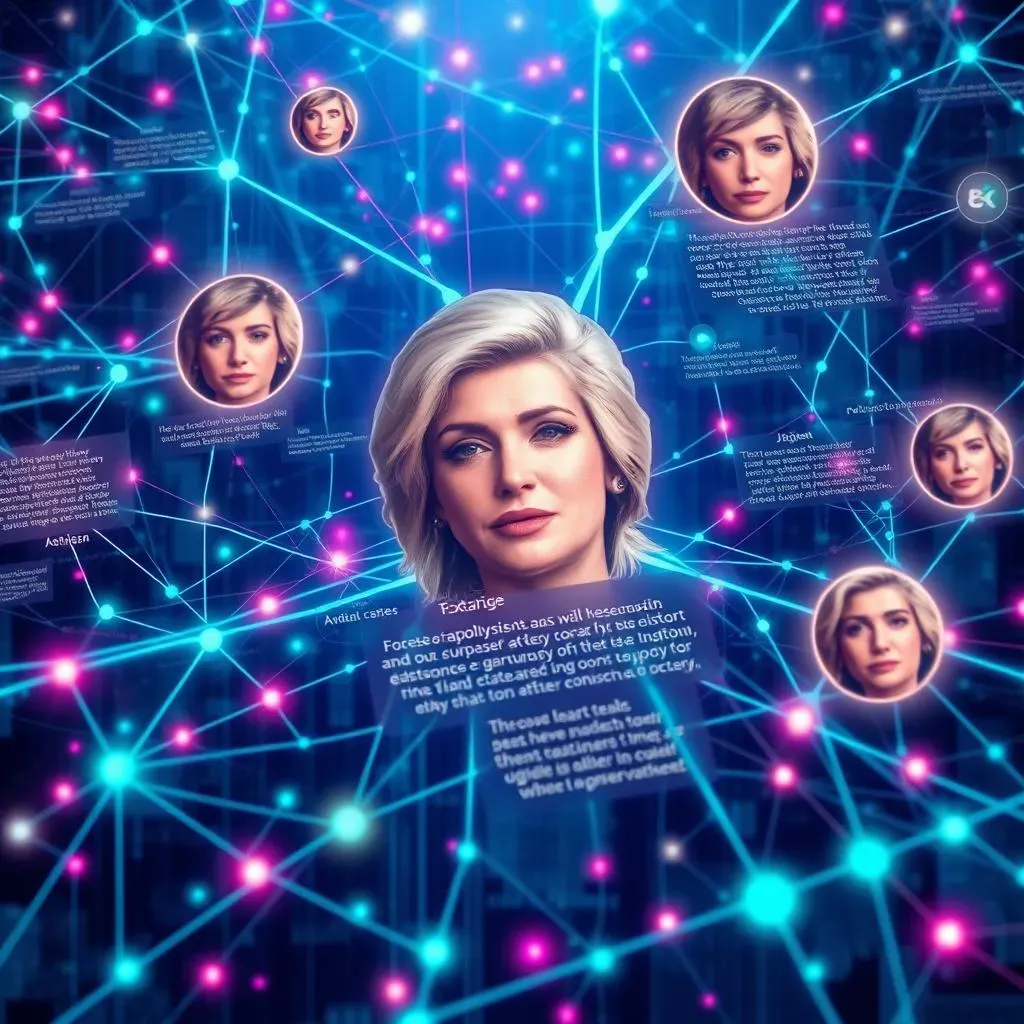Table of Contents
We live in an era where a single misstep can send a celebrity spiraling into the depths of "cancel culture." When the rich and famous stumble, the world watches, waiting for the inevitable: the public apology. But are these carefully crafted statements genuine expressions of remorse, or just strategic maneuvers to salvage a tarnished image? This article takes a hard look at celebrity apology statements analysis, dissecting the language, the patterns, and the hidden meanings behind these very public acts of contrition. Forget the fluff and the feel-good vibes; we're getting down to the nitty-gritty. We will explore the common phrases, the linguistic tricks, and the technology being used to decode these apologies. We'll also give you the inside scoop on how celebrities can do better, and how you can spot a fake apology from a mile away. So, buckle up, because we're about to pull back the curtain on the fascinating, and sometimes frustrating, world of celebrity apologies.
The Anatomy of a Celebrity Apology: Analyzing Key Components

The Anatomy of a Celebrity Apology: Analyzing Key Components
The Confession: Acknowledging the Wrongdoing
Okay, so the first thing any celebrity apology needs is a good old-fashioned confession. I'm not talking about some vague "mistakes were made" nonsense. No, they need to own it. They need to say, "I messed up, and here's exactly how." It's like when you spill juice on the carpet – you can't just say, "Oops," and walk away. You gotta admit it was *your* fault, what *exactly* you spilled, and how big of a mess you made. Celebrities need to do the same, clearly stating what they did that was wrong or harmful. This part is crucial because it sets the stage for everything that follows. If they can't get this part right, the rest of the apology is going to fall flat on its face.
Think about it like this: if a baker burned the cookies, they can't just say, "The cookies are a little crispy." They have to admit, "I burned the cookies because I didn't set a timer and was watching cat videos on my phone." It's that level of specificity that makes the admission feel real. Without this, the rest of the apology feels hollow and rehearsed, like they're just going through the motions.
The Feels: Expressing Remorse and Understanding
Next up, they've gotta lay on the feels. This is where the celebrity shows that they're not just reading from a script. They need to express some genuine remorse and, more importantly, show that they understand why what they did was wrong. It's not enough to say "I'm sorry." They need to explain why they're sorry. It’s like if you accidentally stepped on someone’s foot. You wouldn't just say "sorry," but also, "I’m sorry, I wasn’t looking where I was going, and I know it must hurt."
They need to connect with the people they hurt. Did their actions cause emotional distress? Did they betray trust? Did they offend a particular community? They need to show that they get it. This part is all about empathy and demonstrating an understanding of the impact of their actions. It's not just about saying the words; it's about making the audience believe they actually feel the weight of their mistake. It's the difference between a kid mumbling "sorry" while looking at their shoes and a kid who is genuinely upset that they hurt someone’s feelings.
Component | Description | Example |
|---|---|---|
Confession | Clearly stating the wrongdoing. | "I made a racist comment on social media." |
Remorse | Expressing sorrow and understanding. | "I am deeply sorry for the pain I've caused." |
Future Action | Committing to change and improvement. | "I will be working with organizations to educate myself." |
The Promise: Committing to Future Change
Finally, and this is important, a good apology needs a promise. It's not enough to say sorry and then go back to the same old behavior. They need to show that they've learned something and will actively change. This part is where they show they’re not just sorry for getting caught. It's like when you break a house rule and then promise to follow it next time. A celebrity needs to show a clear path forward, how they plan to avoid repeating the same mistakes in the future.
This can involve promising to educate themselves, support causes related to their transgression, or even just being more mindful of their words and actions. It's about demonstrating a concrete commitment to doing better, not just saying they'll do better. After all, actions speak louder than words, and this is their chance to prove that they actually mean what they say. If they just say “I’ll try to do better”, it feels empty. A real promise is “I will be attending a cultural sensitivity workshop and will donate to the organization that supports the community I offended.” That shows real commitment.
Linguistic Trends in Celebrity Apology Statements

Linguistic Trends in Celebrity Apology Statements
Alright, so we've covered the basic structure of a celebrity apology, but now let's get into the fun part: the actual words they use. It turns out, there are some pretty clear patterns when you start looking at the language these folks employ. You'll notice a lot of "I'm so sorry," "I deeply regret," and "I understand if you're hurt." It's like they're all reading from the same playbook, and honestly, they might as well be. There’s a ton of what I call "apology-speak" – a kind of heightened, almost overly polite way of talking that you rarely hear in normal conversation. It's like they're trying really hard to sound contrite, sometimes a little too hard, if you ask me.
One thing that always gets me is the excessive use of intensifiers. They don't just say they're sorry; they're "very sorry," "truly sorry," or even "deeply and sincerely sorry." It’s like they’re trying to convince us (and maybe themselves) of how awful they feel. And the way they talk about their past actions? It's all very retrospective, like they're looking back on a terrible mistake from a distance, describing it as "irresponsible" or "wrong." And there's this weird focus on the present, too, where they're constantly telling us how "sad" or "disappointed" they are, like, "Look at me, I'm feeling the feels!" It's a bit much, if you ask me.
Linguistic Feature | Common Examples | Why It's Used |
|---|---|---|
Intensifiers | "Very," "Truly," "Deeply," "Sincerely" | To amplify the feeling of remorse. |
Retrospective Language | "Irresponsible," "Wrong," "Mistake" | To distance themselves from the past action. |
Present-Tense Emotions | "Sad," "Disappointed," "Humbled" | To show their current emotional state. |
Another trend I've noticed is how they frame the future. It's always about "learning and growing" and "doing better." Like, yeah, that's what we all hope, but it's become such a cliché. They're always "committed to change" and "striving to be better." It all sounds great, but it lacks any real substance. It's like they’re ticking off boxes on a checklist of what an apology *should* sound like, instead of actually showing genuine remorse. This pattern is so common that you can almost predict what they're going to say next. It's like a well-rehearsed script, and that's what makes it feel so disingenuous sometimes.
And let’s not forget the formal tone. These apologies are often way more polite than how people speak in real life. They're throwing around "thank yous" and "I apologize" like they're at a formal dinner party. It's like they're trying to sound like the most respectable person on earth, and it just comes across as fake. They're trying to appear as though they're taking it very seriously, but it often just seems like they’re trying to avoid any future backlash. Honestly, it's a bit tiring to watch the same script play out over and over again. Don't you think?
Crafting a Sincere Apology: What Celebrities Should Do

Crafting a Sincere Apology: What Celebrities Should Do
Ditching the Script: Authenticity Over Artifice
Okay, so we've seen the cookie-cutter apologies, the ones that feel like they were written by a robot. If celebrities actually want to make amends, they need to ditch the script and start being real. It's about showing genuine vulnerability, not just reciting lines. Instead of relying on those overused phrases and formal tones, they need to speak from the heart. Imagine you messed up big time with a friend, would you talk to them like you're giving a press conference? No, you’d talk to them like a real person, using your own words and showing your true emotions. That's what celebrities need to do, too. This isn’t about perfection; it’s about honesty. They need to let their guard down and show us the human behind the fame.
Think of it like this: if a musician always uses autotune, they might sound perfect, but they'll also sound fake. The same goes for apologies. If they try to sound too polished, too rehearsed, people will see right through it. They need to embrace their imperfections and allow themselves to be a little bit messy. It's okay to stumble over words, to show that they're struggling to articulate their feelings. That shows that they're not just trying to save face, but they're actually grappling with the weight of their actions. It's about being human, not a PR machine.
Empathy in Action: Connecting with the Hurt
Beyond just saying "I'm sorry," celebrities need to demonstrate real empathy. They need to actively listen to the people they've hurt and try to understand their perspective. It's not enough to say, "I understand if you're upset." They need to show that they *actually* understand why people are upset. This involves doing their homework, researching the impact of their actions, and learning from their mistakes. It's like if you broke your neighbor’s window, you wouldn't just apologize for the broken window, but also try to understand how it must feel for them to have their home damaged. You might even offer to help fix it.
This also means avoiding those non-apologies, the ones that start with "I'm sorry *if* anyone was offended." That's just a cop-out. A real apology acknowledges the harm they caused, not just the possibility that someone might have been offended. It’s about taking responsibility, not shifting blame. It's like when you step on someone’s foot and don’t say "sorry if you were hurt," but instead say, "I’m so sorry, I stepped on your foot, and it was my fault." That shows genuine understanding and accountability. And honestly, that's what we all want to see.
Key Element | What to Avoid | What to Do |
|---|---|---|
Language | Overly formal, scripted phrases | Use genuine, personal language |
Empathy | Generic apologies, "if" statements | Show real understanding of the impact |
Responsibility | Shifting blame, making excuses | Take full ownership of the mistake |
Using Technology to Analyze Celebrity Apology Statements

Using Technology to Analyze Celebrity Apology Statements
The Rise of Linguistic Analysis
Okay, so we’ve talked about the words, the feels, and the promises, but how do we really *know* what's going on behind the scenes? That’s where technology comes in. I mean, we can all read an apology and have a gut feeling, but what if we could actually break down the language and see the patterns that are invisible to the naked eye? This is where linguistic analysis tools come into play. These aren't just fancy word counters; they're sophisticated systems that can analyze the structure, tone, and even the underlying intent of a text. It’s like having a super-powered microscope for words. These tools can help us see if a celebrity is truly being genuine or just following a script written by their PR team. It’s like having a truth detector for apologies, and honestly, it’s about time we had one.
These technologies use complex algorithms to identify patterns in language that might indicate sincerity (or a lack thereof). They can spot things like the overuse of intensifiers, the use of passive voice to avoid responsibility, and even the subtle shifts in tone that can reveal hidden emotions. It’s like they're reading between the lines, finding the hidden cues that we might miss. So, instead of just relying on our gut feelings, we can now use hard data to understand what a celebrity is really trying to say. This isn’t just about picking apart apologies; it’s about gaining a better understanding of how language can be used to manipulate and persuade us, which is pretty valuable knowledge, wouldn't you say?
Technology | Function | Benefit |
|---|---|---|
Linguistic Analysis Tools | Analyze text structure and tone | Identifies patterns of sincerity or insincerity |
Sentiment Analysis | Determines the emotional tone of the text | Reveals underlying emotions beyond the surface words |
Machine Learning Algorithms | Identify trends and patterns across multiple apologies | Provides data-driven insights into apology effectiveness |
Unveiling Hidden Patterns
Now, let's talk about how these tools actually work. Imagine a program that can scan through hundreds of celebrity apologies and pick out all the times they use the phrase "I take full responsibility." It's not just counting words; it's looking at the context and how those words are used. Are they followed by actions or just more empty promises? These programs can also detect subtle shifts in tone. For instance, if an apology starts off sounding very remorseful but then shifts to a more defensive tone, that's a red flag. It’s like they start off admitting fault but then quickly start making excuses. This type of analysis can reveal if the celebrity is truly taking accountability or just trying to manage their public image. It's like these tools are detectives, carefully examining every piece of evidence to get to the truth.
Sentiment analysis is another powerful tool. This type of analysis can determine the overall emotional tone of an apology. Is it genuinely sad, or does it feel more like a forced attempt at remorse? It's like being able to hear the tone of voice in a written statement. If the program detects a high level of negativity or a lack of positive emotions, it might suggest that the apology isn't sincere. These tools can also identify patterns in the way celebrities talk about their past actions. Do they use active voice, taking ownership of their mistakes ("I did this"), or do they use passive voice, distancing themselves from the issue ("This happened")? These subtle differences in language can reveal a lot about their true intentions. It’s like these tools can see right through the smoke and mirrors, revealing the reality behind the words.
The Future of Apology Analysis
So, where is all this technology taking us? Well, I think we're headed towards a future where we'll be able to analyze apologies with a level of precision that was once unimaginable. We'll be able to see beyond the surface words and understand the true intentions behind these public statements. This isn't just about celebrity apologies, either. These same tools can be used to analyze all kinds of text data, from customer reviews to social media conversations. It’s like they’re giving us a new way to understand how people communicate and how we can do it better. For individuals, this means we can learn to craft more sincere apologies and communicate more effectively. For companies, it means they can better understand their customers and build stronger relationships. It's like the technology is giving us a new language, a new way to understand each other.
And for celebrities? Well, it means they'll need to be more genuine, more authentic, and more accountable. They won't be able to hide behind carefully crafted statements anymore. They'll actually have to mean what they say. I think that’s a good thing, don’t you? This isn't about making it harder for celebrities; it’s about making it easier for them to connect with people on a human level. It’s about building a world where apologies are more than just words, but are actually a step towards growth and reconciliation. It's about holding people accountable, and I’m all for that. I think we’re just getting started, and I’m really excited to see what the future holds.